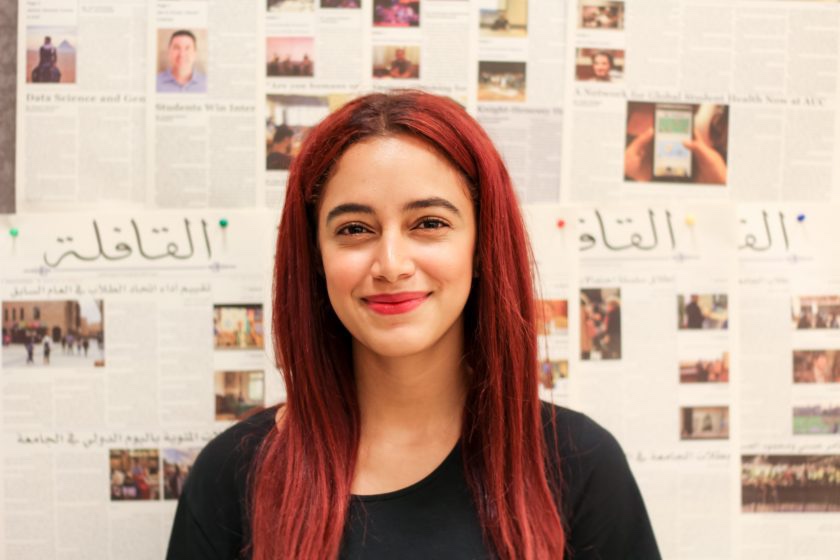Seasoned Diplomat Nabil Elaraby Leaves Arab League
BY NADA SHAKER
@NADASHAKER94
After a five-year term marked by turbulence and turmoil in the Arab World, Ambassador Nabil Elaraby is getting ready to leave office after announcing that he will not renew his mandate as Secretary-General of the Arab League.
When he was appointed Secretary-General, Elaraby made it his mission to develop the Arab League with particular emphasis on revising its charter.
The Arab League’s charter is the writ which outlines the principles, regulations and rights of the 22 Arab members.
Elaraby wanted to establish a new draft of the charter during his tenure.
“It was high time to improve the charter,” Elaraby told The Caravan.
“The old charter was established in 1944, it was missing issues concerning human rights, economic development and cooperative work,” he continued.
Elaraby’s senior adviser Ambassador Aly Erfan provided an analogy to illustrate the trouble of using an old charter to face current problems.
“He was driving a 1944 model car that is going downhill at a very high speed. He was not only expected to drive it but to fix it as well,” Erfan told The Caravan.
However, when Elaraby took office in 2011, the region had just fallen into one of the most politically volatile eras in its history.
It was a time of revolution, uprisings, failed states and the growing specter of Islamic extremist terrorism.
Then came the Syrian Civil War. Elaraby said that tackling the Syrian crisis had been a priority since the beginning of his term in office.
In his view, the League could have succeeded in preempting the crisis if its aims to enforce a ceasefire, free political prisoners and institute political reforms had been met.
“I believe, and I will always believe, that this might have changed a lot, as the situation in Syria had not yet escalated so much by 2011. There were only people protesting against the Syrian government just like the protesters in Tahrir Square, but they were shot or put in prison,” Elaraby said.
He explained that as soon as the League’s demands were rejected, a group of 14 ministers of foreign affairs met with the Syrian government in October 2011.
“The Syrian government signed an agreement demanding a ceasefire and the sending of Arab League observers to 16 different cities in Syria. For the first time, we had an operation room that worked 24/7: it received reports about the ongoing crisis in Syria,” Elaraby said.
But when the crisis worsened and the deaths of civilians began to rise, the Arab League had to hand the Syria file to the UN Security Council.
It took the UN five years – and 250,000 deaths later – to reach an agreement that silenced the guns.
Despite its precarity, the ongoing UN-brokered cessation of hostilities in Syria has so far lasted over two weeks, leading many to regain hope in a situation that has been all but bleak for the past five years.
Elaraby was a man of many accomplishments – chief among them was his time as head of the Egyptian delegation in the Taba dispute negotiations with Israel from 1985 till 1989.
Erfan believes that it was Elaraby’s patience and tolerance as a “seasoned negotiator” which enabled him to succeed in the heated negotiations.
“He was the main inspiration behind my joining the [Foreign] Ministry. When I graduated, I heard about a man named Nabil Elaraby, who was a member of the negotiating team aiming to regain Taba, so I wanted to join this team and to fight for returning back [an] important part of my country,” he said.
Through those negotiations he managed to regain land to Egyptian territory, from its occupation by Israel since 1976.
Elaraby also served as a commissioner at the United Nations Compensation Commission in Geneva, from 1999 to 2001, after which he served as a judge in the International Court of Justice.
He was appointed as the first foreign minister after the January 25 Revolution in 2011.
The revolution was youthdriven and for the first time empowered this important demographic.
Elaraby advises that young Arabs should be the change they want to make.
“You either will be a doer or a spectator in life. So you either be a positive and active person to make a change by studying more … rather than only watching what is happening and refraining from creating change.”
At press time on Thursday the 22 members of the Arab League met to elect Elaraby’s successor. Former Egyptian Foreign Minister Ahmed AboulGheit is the Egyptian nominee and only candidate for the position.



